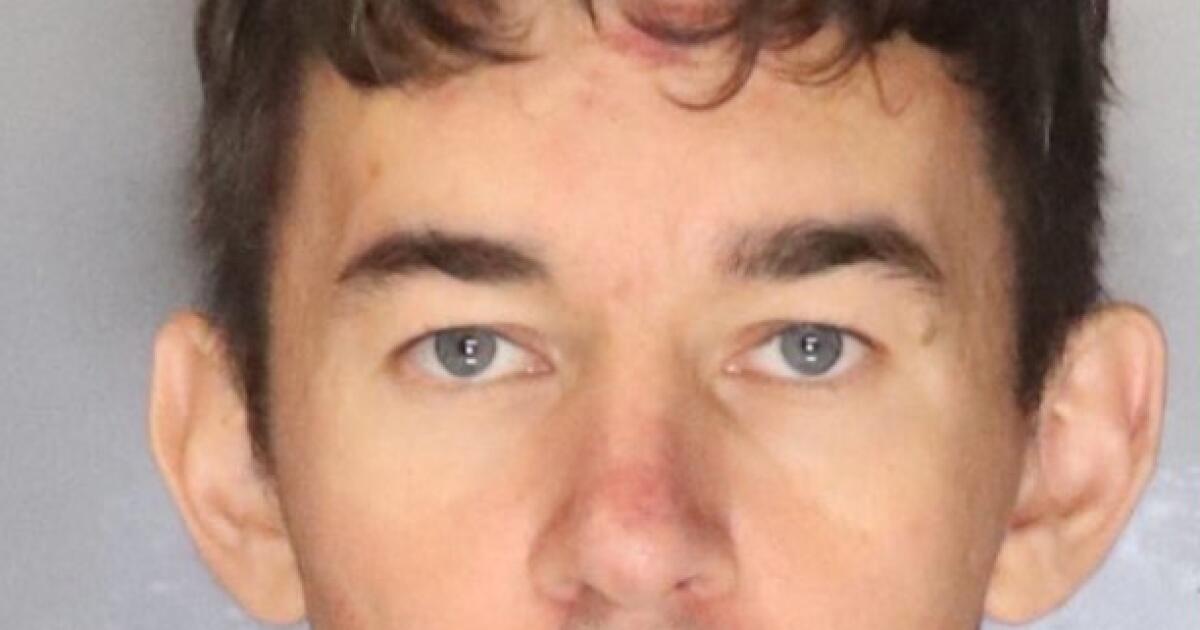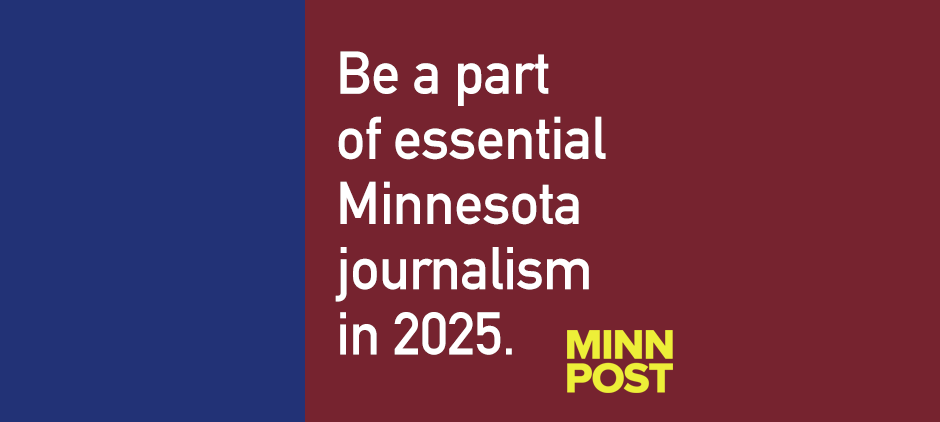For most of her life, Andrea Gilats wasn’t the kind of person who bared her soul to the world. In her 30-year career at the University of Minnesota, as founding director of the Split Rock Arts Program and founder and director of Learning Life, Gilats instead focused on providing opportunities for others to engage their creative talents.
“I had a rewarding career,” Gilats, 79, said. “In many ways, I felt like my work helped to give my life meaning. I was satisfied with that.”
Later, in her retirement, Gilats discovered another side of herself. With open time to think about her life and the experiences that have shaped it, she was inspired to write the searingly honest “After Effects: A Memoir of Complicated Grief” about the decade she spent in deep grief after the untimely death of her husband Tom Dayton.
Not long after the book’s publication, Gilats realized she had more to say about her long life, particularly about her personal experiences with aging and how a cultural obsession with youth has the power to harm our mental health. She wanted to reflect on how years of experiences — both painful and pleasurable — have shaped her into the person she is today. Those stories, along with Gilats’ musings on the challenges of aging, appear in her latest memoir, “Radical Endurance: Growing Old in an Age of Longevity” (University of Minnesota Press, 2024).

When I spoke with Gilats last week, she told me, “When you live a long time, you do a lot of different things.” Rather than fade into the background, she said she wants to tell her story, a complicated history that she believes she shares with many of her peers.
Though some might view the last decades of life as a time for quiet reflection, Gilats sees it differently. She hopes the stories she has chosen to share with the world will inspire others to embrace aging as an opportunity for continued growth. “There’s still so much more to say,” Gilas said. “I hope that talking about my experiences can help others realize that they are not alone.” This interview has been edited for length and clarity.
MinnPost: Did you always know you wanted to write a book about aging?
Andrea Gilats: When I was working with the University of Minnesota Press on “After Effects,” I already knew I wanted to write this book. I was further spurred on by the pandemic and the fact that it was so, especially, affecting old people. I think that at least 70% of pandemic deaths in the U.S. were people over age 65. Because of my own age, that statistic was inspirational to me. I knew I wanted to write a book that would combine stories from my professional experience and my personal experience of growing older.
MP: In this book you talk about some deeply personal events in your life. Why did you choose to be so open and self-revealing?
AG: I think that if you don’t talk about things like this it just advances a culture of silence, particularly with women. I wanted to resist that. Honestly, I don’t think I talked about anything that was too personal or intimate. I was measured. But it seems to me especially in memoir that’s the place where one is asked to be oneself. I wanted to talk about how we grow and find ourselves by looking back on our past in our old age. There’s this wonderful quote. It’s on a Post-it on my computer. It says, “When memory comes, knowledge comes, too.”
MP: One of the personal events you write about is a time you attempted suicide decades ago, when you were a young woman. Can you tell me more about how you felt this story fit in a book about aging?
AG: I think suicide is always with us, but it is increasingly with us as we age. In the U.S., suicide rates, especially among men, are highest among the oldest people. I was astounded to learn that. I thought, “I need to write about this.” I knew the story of writer Carolyn Heilbrun, [the best-selling author of “Writing A Woman’s Life,” who died by suicide at age 77 in 2003]. That was one of those things that never left me. When I was writing about aging and mental health, I thought, “This is the time to write about her and let her story form a bridge so that I can talk about my own experience.”
I still wonder if many more of us think about suicide than actually do it. Suicide is there even in old age. Because of Carolyn Heilbrun’s story, I have always wondered, “What was it about old age, about the way we view our worth in old age, that would be so terrible or terrifying that it would make a person like her want to end her own life.”
MP: Oncologist and bioethicist Eziekiel Emmanuel famously wrote an essay in The Atlantic saying he wanted to die by age 75, that by that age a person had basically outlived their usefulness. At age 79, what do you think about that perspective?
AG: He’s only 67, so that’s easy for him to say. I think that he has a really good-sized ego. I was tempted to write about him in my book, actually, because this attitude of his all goes back to ageism. We’re so inculcated with ageist behavior. It has infiltrated our minds. I’m not sure my book can change that too much. At the least, I was hoping to bring to light some of these prejudices that are so pervasive that we are not even aware of them.
MP: You also write about having an abortion in 1979, before you and your late husband were married. What made you want to share that story in this book?
AG: Going back to your question about writing things that are deeply personal, I wanted to tell the story of my abortion because I believe I am not the only one that has that kind of story to tell. It is something in my past that, as I say in the book, especially after my husband passed away, has stayed in my mind. It was permanent. You can’t take it back. And yet I still stand by it. Also, my husband and I made that decision basically out of sadness. We knew it wasn’t practical to have a child at that point in our lives. I thought it was important to tell the story. Then, after I had written that chapter, the Dobbs decision came down. I thought, “Now it’s even more important to talk about it.”
I know those two things — the suicide attempt and the abortion — are intimate. But they are not unique to me. They are common experiences for so many people. I’m close to 80 years old. In the book, I talk about how the veil between life and death gets thinner and thinner and thinner as one gets older. It is not as opaque as it once was. In order to talk about old age, I needed to talk about all of the things that happen to all of us during our long lives.
MP: Are there things that particularly concern you about aging?
AG: My greatest fear, other than losing my mind, is having to live in a nursing home. I think the state of nursing home care is shameful. But I know that may be my reality someday. I thought I needed to voice these fears in this book partly because they are real and I’m not the only one who feels this way.
In my book, I write not only about the terrible things I’ve read about nursing home care but also about my personal experience with nursing homes. I have family members who have been in good nursing homes, but there are also too many awful nursing homes. I think for most people, the move to a nursing home represents such a diminishment in quality of life that it opens the door to dying. When you look at the statistics about how long people live in nursing homes, the average stay from the time of admission to death is not very long. I don’t attribute that to failing health in the very old. In part, I attribute it to the lack of what I call an engaged life in most nursing homes.
MP: How would you define an engaged life? And why do you think that is important for the mental health of an aging person?
AG: Part of what I believe and want to make clear in this book is that for older people, intellectual stimulation is every bit as important for our health and happiness as is caring for our creature needs like food and housing. I think especially in a state like Minnesota, we do a good job of caring for the creature needs of the aging population — but we need to do more to help take care of those emotional and intellectual needs.
We have people of every age in the building where I live. I have several friends my age who have chosen to live in so-called “senior living communities.” Some of these communities are just wonderful. Residents are still largely independent. It is like living in a condo: You direct your own life, you have freedom of movement. What it gives you is a community, a sense of belonging. But that’s not the case in all senior-living environments.
MP: There is a large portion of your book where you write about your experience living through the Covid pandemic as a person over age 65 with a few chronic illnesses. There were times when you were lonely. Did that experience open your eyes to the loneliness experienced by many older people?
AG: Persistent loneliness is a serious issue for a lot of seniors. Loneliness has become so rampant that the Surgeon General issued a warning that we have a loneliness epidemic. Loneliness can make you sick and it can kill you. I think that many, many people in old age are living with loneliness. I believe that something like 44% of women over age 75 in the U.S. live alone. Loneliness also affects older men.
By that age, many people have lost a spouse. They may have been retired from their work for a decade. Those relationships gradually fade the longer you are in retirement. Your children maybe have moved away.
MP: You have lived on your own for a long time now. Does solitude have a different impact on your mental health now that you have, as you write, crossed the line into old age?
AG: I have lived alone since my husband died 26 years ago. There is a difference between loneliness and missing someone. For a decade after my husband died, I missed him urgently, profoundly. I don’t think of that as loneliness because I wasn’t missing being with people then. I was missing Tom and our relationship. Later, as I got older, I began to understand what it was like to be lonely. Part of that is a lack of meaning in life. We derive meaning from our relationships. When we lose meaning in our life, we lose our reason for living.
So many old people are alone in so many ways. When we don’t have contact with others, what happens to our minds? We need to be in relationships, whether that is with another human being, a book, nature. Loneliness for me is that yearning for relationships. That’s what makes it so painful. One expert that I quote in my book calls loneliness a feeling of being distressed.
MP: How do you cope with that feeling of being distressed in your life?
AG: For me, one way that I combat it is a lesson I learned from the pandemic. We can now communicate online and see each other on our computers. I do a lot of Zoom meetings and get together with people who live in other places. I love online contact. I’m an introvert, so that mode of communication works well for me. And now that I can get out socially I love having lunch with friends. And I don’t know what I would do if I couldn’t read. Reading a wonderful novel or memoir is a wonderful way for me to combat loneliness.
The other thing I do every day without fail is take a walk. I think physical engagement is so important. I live on the river. During the pandemic, I was able to get outdoors and walk along the river. For me, even if I was walking alone, that was a great way to keep loneliness at bay. My family has also become very important to me as I age. I make sure to keep my family connections close and strong. If I’m feeling down, I’ll call my sister.

Andy Steiner
Andy Steiner is a Twin Cities-based writer and editor. Before becoming a full-time freelancer, she worked as senior editor at Utne Reader and editor of the Minnesota Women’s Press. Email her at [email protected].








Leave a Reply